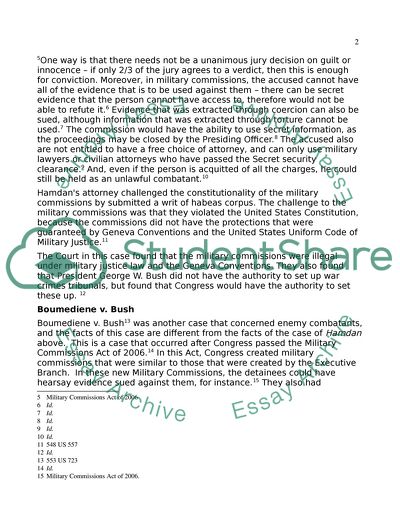Cite this document
(Guantanamo Bay and Due Process Term Paper Example | Topics and Well Written Essays - 2000 words, n.d.)
Guantanamo Bay and Due Process Term Paper Example | Topics and Well Written Essays - 2000 words. Retrieved from https://studentshare.org/law/1795291-discussion-of-ethical-dilemma-of-enemy-combatantsdetainees-at-gitmo
Guantanamo Bay and Due Process Term Paper Example | Topics and Well Written Essays - 2000 words. Retrieved from https://studentshare.org/law/1795291-discussion-of-ethical-dilemma-of-enemy-combatantsdetainees-at-gitmo
(Guantanamo Bay and Due Process Term Paper Example | Topics and Well Written Essays - 2000 Words)
Guantanamo Bay and Due Process Term Paper Example | Topics and Well Written Essays - 2000 Words. https://studentshare.org/law/1795291-discussion-of-ethical-dilemma-of-enemy-combatantsdetainees-at-gitmo.
Guantanamo Bay and Due Process Term Paper Example | Topics and Well Written Essays - 2000 Words. https://studentshare.org/law/1795291-discussion-of-ethical-dilemma-of-enemy-combatantsdetainees-at-gitmo.
“Guantanamo Bay and Due Process Term Paper Example | Topics and Well Written Essays - 2000 Words”, n.d. https://studentshare.org/law/1795291-discussion-of-ethical-dilemma-of-enemy-combatantsdetainees-at-gitmo.


